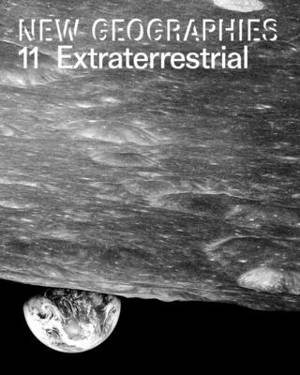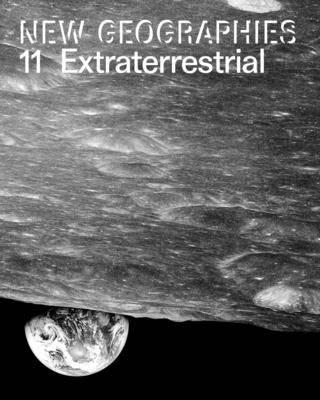
- Afhalen na 1 uur in een winkel met voorraad
- Gratis thuislevering in België vanaf € 30
- Ruim aanbod met 7 miljoen producten
- Afhalen na 1 uur in een winkel met voorraad
- Gratis thuislevering in België vanaf € 30
- Ruim aanbod met 7 miljoen producten
Zoeken
Omschrijving
New Geographies 11: Extraterrestrial explores the historical and contemporary consequence of our planetary relationship with space. It interprets this duality through the conceptual lens of "extraterrestrial," which engages an entangled zone of expanding practices in geography, landscape, and architecture, stretching Earth to space, and conversely, space to Earth. This issue questions the means through which space is forged as a condition extra to our own terra. Complicit within this imagination resides a deep political and economic logic that serves to territorialize outer space as an exception to, and extension of, Earth. These critical processes are revealed as not extra at all, but rather distinctly of terra. Through a series of written, photographic, and representational investigations, this edition of New Geographies builds on earlier studies of outer space from science, technology and society, as well as from the design disciplines, history, and critical geography. It reinforces the need for humanity's changing relationship with outer space to be recorded, critiqued, and theorized from a breadth of academic traditions and projected within design discourse. This issue brings together experts contributing to the social, political, and cultural imaginary implicit in extraterrestrial. Three primary thematic territorial devices structure these explorations: a technologically constructed space between, a material culture constructed and discharged, and a space politically and economically reflective, all revealed through historical and contemporary society. New Geographies is a journal of design, agency, and territory founded, edited, and produced by Doctor of Design candidates at the Harvard University Graduate School of Design. New Geographies presents the geographic as a design paradigm that links physical, representational, and political attributes of space and articulates a synthetic scalar practice. Through critical essays and projects, the journal seeks to position design's agency amid concerns about infrastructure, technology, ecology, and globalization. With Contributions of Rachel Armstrong, Katarzyna Balug, Nicholas de Monchaux, Daniel Daou, Rajji Sanjay Desai, Edward Eigen, Rania Ghosn and El Hadi Jazairy, Mariano Gomez-Luque, Gretchen Heefner, Elizabeth A. Kessler, Scott Kirsch, Julie Michelle Klinger, Neil Leach, Michael Light, Lisa Messeri, Roland Miller, Alessandra Ponte, an interview with Kim Stanley Robinson, David Salomon, Felicity D. Scott, Fred Scharmen, Neyran Turan, edited by Jeffrey S. Nesbit and Guy Trangos.
Specificaties
Betrokkenen
- Uitgeverij:
Inhoud
- Aantal bladzijden:
- 176
- Taal:
- Engels
- Reeks:
Eigenschappen
- Productcode (EAN):
- 9781948765503
- Verschijningsdatum:
- 5/05/2020
- Uitvoering:
- Paperback
- Formaat:
- Trade paperback (VS)
- Afmetingen:
- 201 mm x 251 mm
- Gewicht:
- 589 g

Alleen bij Standaard Boekhandel
+ 96 punten op je klantenkaart van Standaard Boekhandel
Beoordelingen
We publiceren alleen reviews die voldoen aan de voorwaarden voor reviews. Bekijk onze voorwaarden voor reviews.










